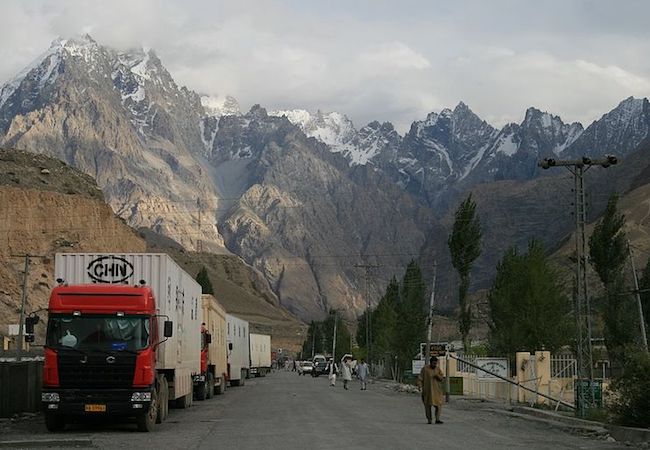
By Qura tul ain Hafeez
Presently the talk of the town is the 100 days agenda which the PTI gave a month before the general election 2018. Recently a couple of days back on 25th of November the first 100 days of Imran Khan’s Prime Minister ship have got completed. The top priority of this agenda is poverty elevation and elimination of corruption for the economic uplift. It is pertinent to mention here that when we say the economic uplift then we can’t ignore CPEC because it is one of the chief contributing factors in poverty elevation, and to lower down the power crises. So here is the point to ponder that what are the outcomes of the PTI’s CPEC vision as far as the CPEC in these first 100 days are concerned.
Previously Prime minister Imran Khan in his first speech as a Prime Minister termed CPEC as a way to upgrade the economically strained nation out of poverty. It was said that it is a paramount and an ideal project through which Pakistani people will enjoy the economic benefits. The PTI Government stressed that the new government under the supervision of Prim Minister Imran khan would surely utilize the advantage of this economic opportunity for the development and betterment of Pakistan. However some of the critics in the start of the new political governance said that the new government will not continue the CPEC project on the previous terms and conditions and it will re assure all projects as there is lack of transparency in CPEC. More over critics like Michael Kugelman were of the view that China would be more comfortable with the Sharif’s government instead of Imran’s because the former government has not raised any concerns related to the transparency of financial plans and agreed on broader terms of the CPEC on a whole.
There is no reality in all such statements because the PTI governments take CPEC as an opportunity which can raise the prospects of Foreign Direct Investment (FDI) and attract the investors across the border and region as well. It will add foreign reserve into Pakistan’s economy. CPEC is also a way to pull approximately 700 unemployed people out of the dark shadows of poverty. PM Imran Khan’s Successful visit to China is an example the PTI is taking CPEC as an important constituent of Pakistan Foreign policy and in upgrading the economy. The outcome of PTI’s achievement in perusing the CPEC policies is not limited to the deepening of the relations between the two countries. It expanded the strategic communication between the two countries. A strategic dialogue mechanism has also been planned so that the cooperation on various issues of mutual concerns could be coordinated in well mannered.
CPEC is not limited to the Economy it also promote cultural and social convergence of two civilizations. The two states agreed to institute the social and lively hood working groups in order to promote the Construction of CPEC. Moreover special focus was cooperation in the fields of economy and development of Special (SEZs), trade and finance for achieving extraordinary economic growth and to encourage exports. Along with this 15 agreements were signed in various other fields including science and technology, agriculture, humanities, etc.
Considering all the plans of President Imran Khan and First 100 Days agenda of economic development and elevation of corruption as far as CPEC is concerned one can infer that although CPEC is a best opportunity under current circumstances to cope with economic challenges however it needs more transparency. There should be innovation of ideas to start new industries for economic growth and industrialization because we should not putt all the eggs in one basket. Currently Pakistan’s biggest issue is difficult economic situation which requires not only a corruption free Pakistan rather a Pakistan which explore and utilizes it full resources and potential for economic rise. Now it’s important to observe that what new strategies the government will adopts to get best out of this CPEC Opportunity for the sake of nations vital interests.
Qura tul ain Hafeez has an M Phil in international relations from Quaid-I Azam University Islamabad. She currently works as a researcher at Strategic Vision Institute in Islamabad. Her domain of work include China as an emerging global power, Sino-Pakistan strategic and civil nuclear relations, South Asian strategic issues, regional integration, nuclear issues including nuclear non-proliferation and NSG, foreign policy analysis, and international politics.




